
Enchanting Lake Avernus: A Natural Gem in Pozzuoli
Discover Lake Avernus, a captivating volcanic lake near Pozzuoli, rich in history and natural beauty, perfect for relaxation and exploration.
Lake Avernus, nestled near Pozzuoli, is a stunning volcanic crater lake steeped in myth and history. Known for its breathtaking scenery and tranquil atmosphere, it's a must-visit destination for tourists seeking nature's beauty and a glimpse into ancient lore.
A brief summary to Lake Avernus
- Pozzuoli, Metropolitan City of Naples, IT
Local tips
- Visit early in the morning to enjoy the tranquil atmosphere and stunning sunrise views over the lake.
- Bring a picnic to enjoy by the lakeside, as there are plenty of scenic spots for a relaxing meal.
- Wear comfortable shoes for walking; the paths around the lake can be uneven in places.
- Consider exploring nearby historical sites to enrich your understanding of the area's cultural significance.
- Bring binoculars if you're interested in birdwatching; the area is home to a variety of species.
Getting There
-
Car
Starting from Amalfi, take the SS163 road towards Positano. Continue on this road until you reach the junction with the A3 autostrada (highway) towards Napoli. Merge onto A3 and follow the signs for Naples. After approximately 30 km, take the exit for 'Pozzuoli'. Follow the signs to Pozzuoli and then to Lake Avernus. The drive will take about an hour, depending on traffic.
-
Public Transportation (Train & Bus)
From Amalfi, take the SITA bus to Salerno. The bus ride will take around 1 hour. In Salerno, transfer to a train heading to Napoli Centrale. The train journey takes about 40 minutes. Once at Napoli Centrale, take the Linea 2 train towards Pozzuoli. Get off at the Pozzuoli station, which is the closest to Lake Avernus. From the Pozzuoli train station, you can take a local bus (Line 5 or Line 6) that will take you to the lake. The entire journey may take around 2-3 hours, depending on wait times.
-
Taxi or Rideshare
For a more direct and convenient trip, consider using a taxi or rideshare service from Amalfi to Lake Avernus. This option will take approximately 1 hour, depending on traffic conditions. Be prepared for a fare that may range from €70 to €100, depending on your negotiation skills and the time of day.
Discover more about Lake Avernus
Iconic landmarks you can’t miss
Via Vigna, 50
4.7 km
Experience the captivating charm and rich history of Via Vigna in Pozzuoli, a must-visit destination for every traveler exploring the beauty of Naples.
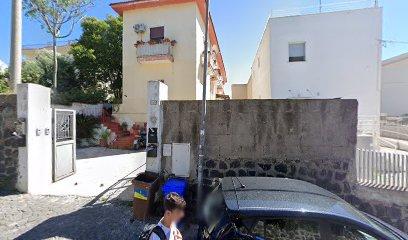
Cave of Sejanus
9.5 km
Discover the historical allure and stunning coastal views at the Cave of Sejanus, a must-visit landmark in Naples, Italy.
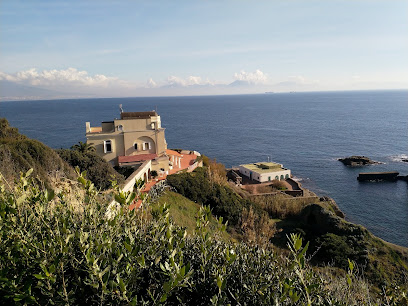
Parco Archeologico del Pausilypon
9.5 km
Discover the ancient Roman heritage and stunning coastal views at Parco Archeologico del Pausilypon, a hidden gem in Naples.
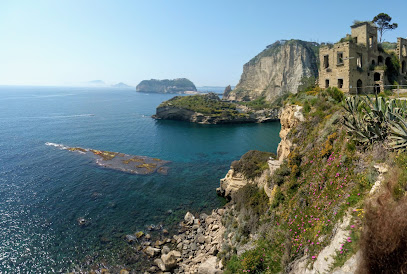
Parco Virgiliano
9.9 km
Explore Parco Virgiliano for breathtaking views, lush gardens, and a peaceful retreat in the heart of Naples, Italy. Perfect for relaxation and outdoor activities.
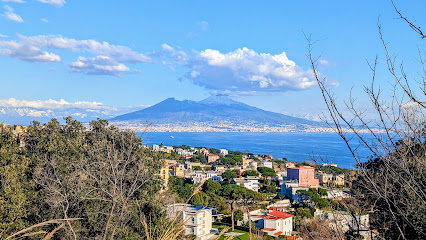
Piazzale Vincenzo Tecchio
10.1 km
Discover the vibrant Piazzale Vincenzo Tecchio in Naples, a cultural hub surrounded by history, cafes, and local charm, perfect for every tourist.
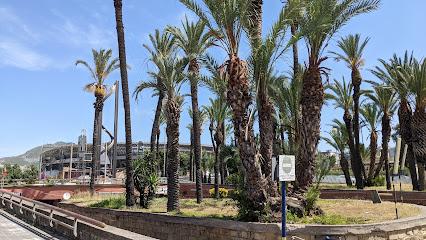
Belvedere occidentale di Posillipo
10.2 km
Discover the stunning views of the Bay of Naples at Belvedere Occidentale di Posillipo, a scenic gem perfect for photography and relaxation.
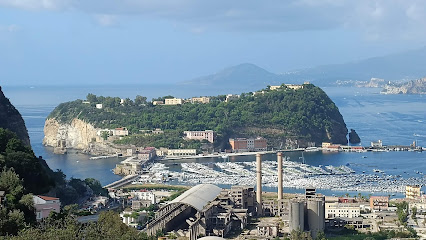
Ponte di Surriento
10.2 km
Discover the captivating beauty and historical significance of Ponte di Surriento, a serene landmark in the heart of Qualiano, Naples.
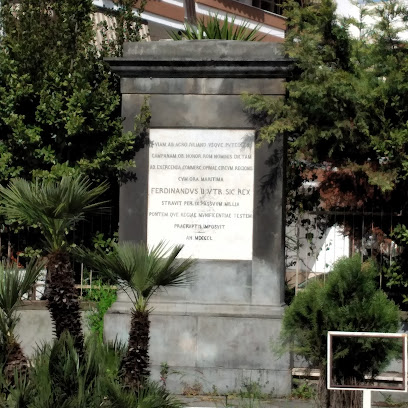
Palazzo degli Spiriti
10.9 km
Explore the rich history and stunning beauty of Palazzo degli Spiriti in Naples, a captivating archaeological site and historical landmark.
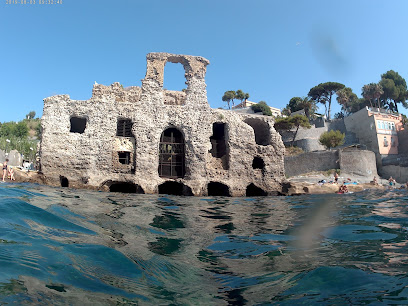
Mausoleo Schilizzi
11.4 km
Discover the architectural beauty and serene ambiance of Mausoleo Schilizzi, a hidden historical treasure in Naples, Italy.
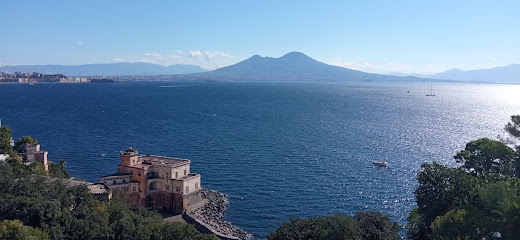
Panoramica Posillipo
11.4 km
Experience the stunning coastal views of Naples at Panoramica Posillipo, where breathtaking landscapes meet tranquility in a picturesque setting.
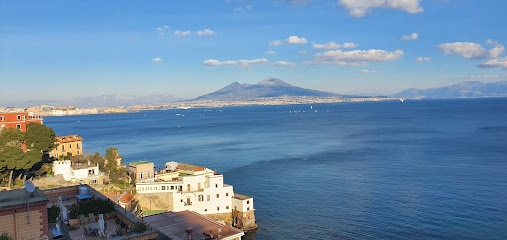
Panorama
11.5 km
Experience the breathtaking views of Naples from Panorama, the city's top observation deck, showcasing the Bay of Naples and Mount Vesuvius.
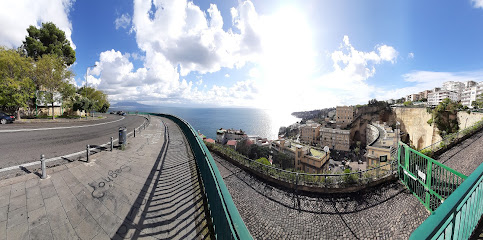
Visit Amalfi Coast
11.5 km
Explore the captivating beauty of the Amalfi Coast, where stunning vistas, charming villages, and rich Italian culture await you.
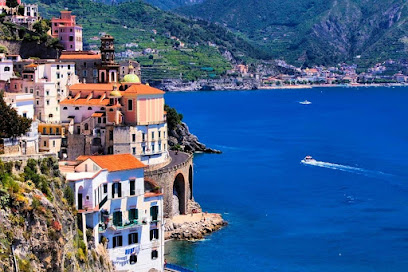
Villa Rosebery
11.7 km
Explore the historical elegance of Villa Rosebery in Naples, a former royal residence surrounded by beautiful gardens and rich Italian heritage.
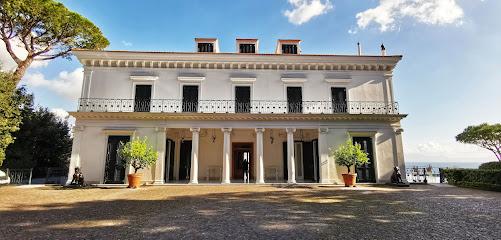
pino di Posillipo
11.8 km
Experience the stunning panoramic views of the Gulf of Naples at Pino di Posillipo, a serene escape in the heart of Italy's enchanting coastal city.
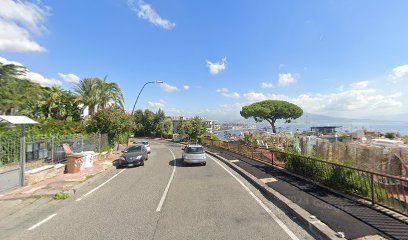
Belvedere di Sant'Antonio a Posillipo
12.1 km
Discover the enchanting Belvedere di Sant'Antonio a Posillipo, where stunning views of Naples and the Bay await every visitor.
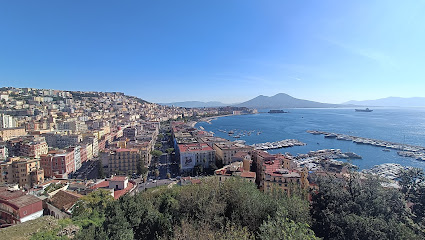
Unmissable attractions to see
Cave of the Sibyl
0.4 km
Explore the mystical Cave of the Sibyl in Pozzuoli, a historical gem steeped in ancient myths and captivating stories of the Roman era.
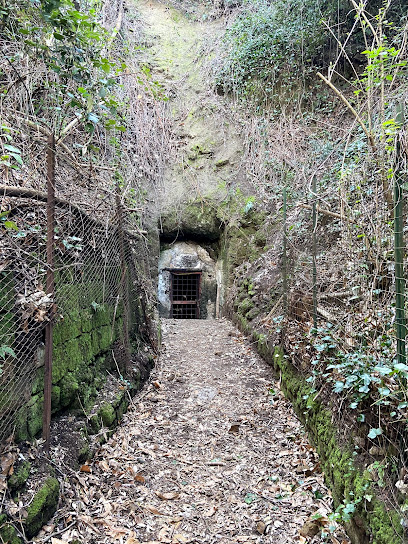
Regional Park of Campi Flegrei
1.1 km
Explore the stunning volcanic landscapes and rich history of the Regional Park of Campi Flegrei, a natural gem near Naples, Italy.
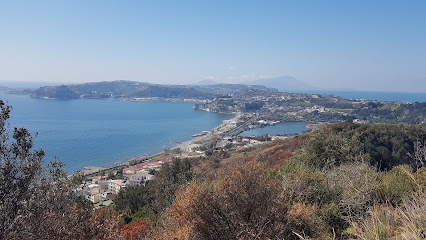
Monte Nuovo
1.1 km
Explore Monte Nuovo, a stunning volcanic peak in Pozzuoli, offering breathtaking views, rich history, and unforgettable hiking adventures in the heart of Campania.
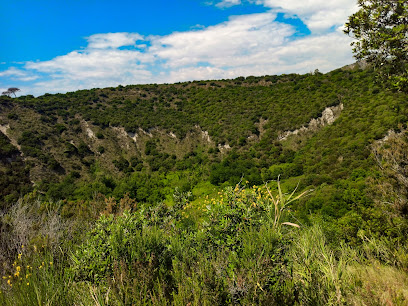
Stufe di Nerone
1.1 km
Discover Stufe di Nerone, a breathtaking thermal bath destination in Bacoli, Italy, blending relaxation with stunning natural beauty for an unforgettable experience.
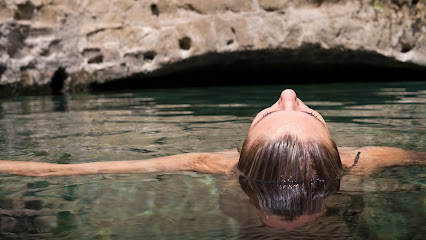
Monte Nuovo volcano Nature Park
1.5 km
Discover the breathtaking beauty of Monte Nuovo Volcano Nature Park in Pozzuoli, a natural paradise perfect for hiking and wildlife watching.
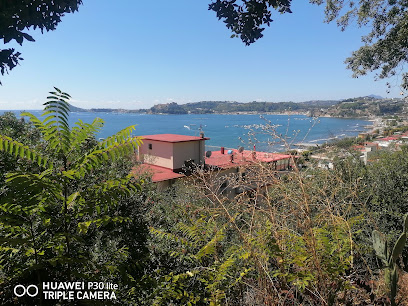
Underwater Archaeological Park of Baia
2.0 km
Uncover the submerged wonders of ancient Rome at the Underwater Archaeological Park of Baia, a unique diving and snorkeling experience in the Bay of Naples.
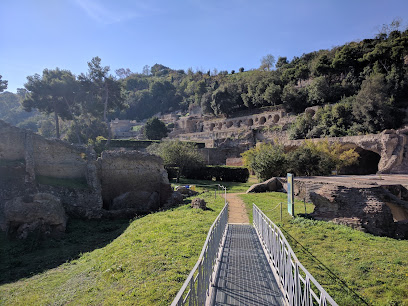
Cuma Archaeological Park
2.1 km
Discover Cuma Archaeological Park, a remarkable archaeological site showcasing ancient Greek and Roman history amidst breathtaking coastal views.
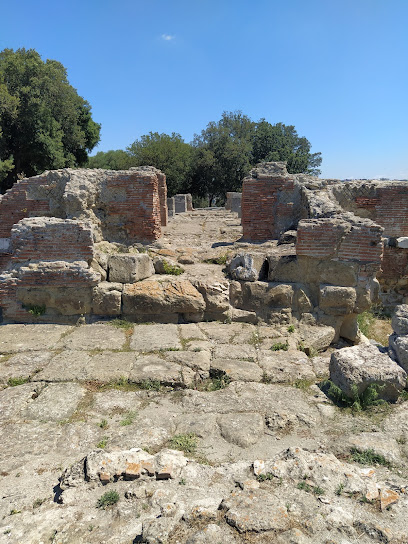
Antro della Sibilla
2.1 km
Explore the mystical Antro della Sibilla, a historic archaeological site in Pozzuoli, revealing ancient myths and stunning landscapes.
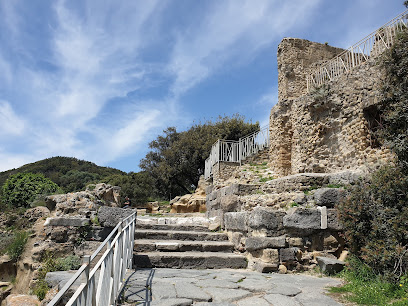
Parco archeologico delle Terme di Baia
2.3 km
Explore the ancient Roman thermal baths at Parco Archeologico delle Terme di Baia, a stunning archaeological site with breathtaking coastal views.
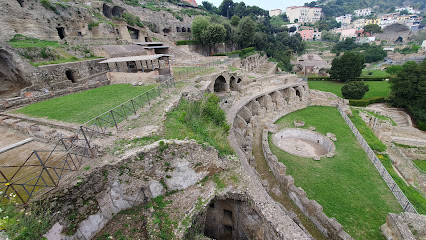
Gulf of Pozzuoli
2.5 km
Experience the tranquil beauty and rich history of the Gulf of Pozzuoli, a serene coastal paradise in Italy's Campi Flegrei region.
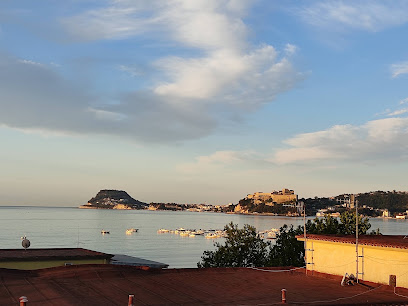
Subaia Diving Center
2.5 km
Experience the beauty of the Mediterranean Sea at Subaia Diving Center, Bacoli's premier destination for scuba diving adventures.
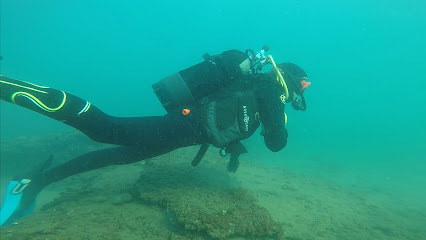
Casina Vanvitelliana
2.6 km
Discover the enchanting Casina Vanvitelliana, an art museum in Bacoli, where history, culture, and stunning landscapes converge for an unforgettable experience.
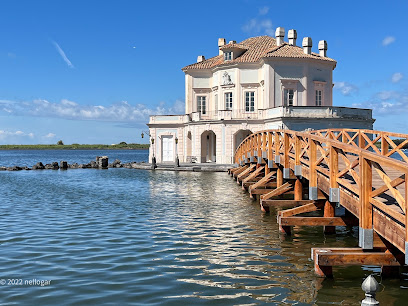
Castello Aragonese di Baia
3.1 km
Experience the enchanting history and stunning views at Castello Aragonese di Baia, a medieval castle in Bacoli, Italy.
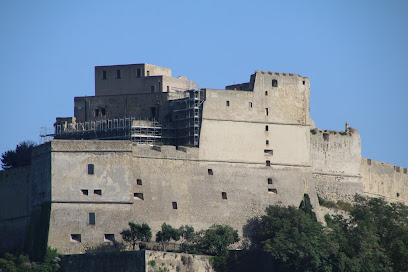
Archaeological Museum of the Phlegrean Fields
3.1 km
Explore the rich history of the Phlegrean Fields at this archaeological museum, featuring ancient artifacts from Greek and Roman civilizations.
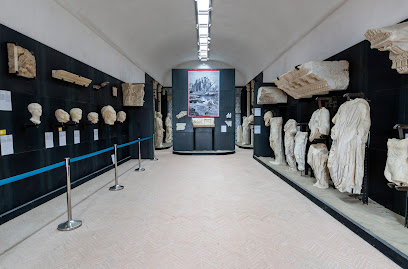
Tomba di Agrippina
4.0 km
Discover the ancient elegance of Tomba di Agrippina in Bacoli, a historical gem overlooking the Bay of Naples, steeped in Roman heritage.
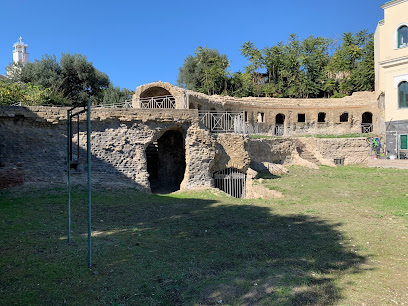
Essential places to dine
Abraxas Osteria
0.8 km
Experience authentic Italian flavors at Abraxas Osteria in Pozzuoli – where exquisite cuisine meets exceptional wines.

Ristorante Calasole
9.9 km
Experience authentic Italian cuisine at Ristorante Calasole in Naples, where fresh seafood meets breathtaking coastal views.
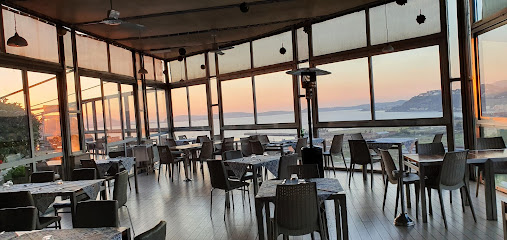
Le Stanze
10.0 km
Discover Le Stanze in Posillipo: A culinary haven serving authentic Neapolitan cuisine amidst stunning views.
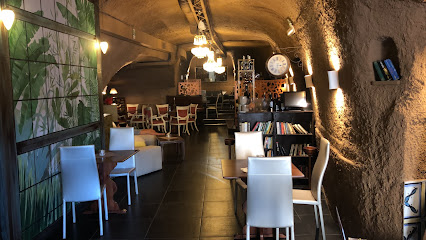
UnPizzicoDi
10.8 km
Experience authentic Neapolitan cuisine at UnPizzicoDi – where every dish tells a story of Italy's rich culinary heritage.
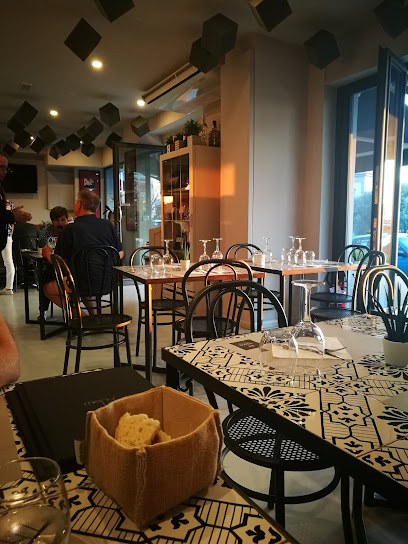
'A Fenestella
11.0 km
Experience authentic Neapolitan cuisine at 'A Fenestella', where seafood delights meet stunning coastal views in Naples.

Ristorante Reginella
11.5 km
Experience authentic Mediterranean flavors at Ristorante Reginella in Naples, where fresh seafood meets traditional Italian pizza in a stunning seaside setting.
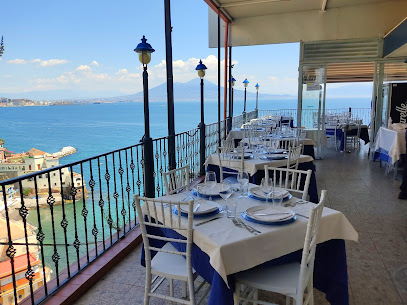
Tufò - Trattoria Gourmet
11.6 km
Experience authentic Italian cuisine at Tufò - Trattoria Gourmet in Naples with stunning views and a warm atmosphere.
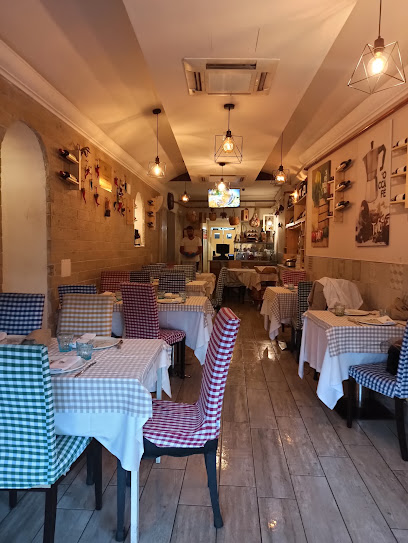
Alicella Ristorante Cruderia
11.7 km
Experience culinary excellence with breathtaking views at Alicella Ristorante Cruderia in Naples – where fresh seafood meets Italian tradition.

Giuseppone a Mare
11.8 km
Experience authentic Italian seafood cuisine at Giuseppone a Mare in Naples, where fresh ingredients meet stunning coastal views.
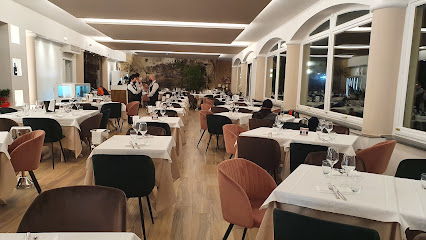
Palazzo Petrucci Ristorante
11.9 km
Experience gourmet Italian cuisine at Palazzo Petrucci Ristorante with stunning views over the Bay of Naples in an elegant fine dining setting.
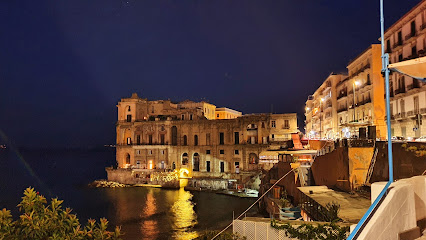
Casa a tre pizzi
12.2 km
Experience authentic Neapolitan flavors at Casa a Tre Pizzi, where stunning bay views meet exquisite dining in Naples.

Cibi Cotti
12.5 km
Experience authentic Southern Italian flavors at Cibi Cotti in Naples – where every dish celebrates tradition and freshness.

Opera Restaurant
12.7 km
Discover the best organic Southern Italian cuisine at Opera Restaurant in Naples - where every dish tells a story.

La Marchesella
12.7 km
Experience authentic Italian cuisine with exquisite seafood and pizza at La Marchesella in Giugliano in Campania.

George Restaurant
13.0 km
Experience exquisite fine dining at George Restaurant in Naples - where culinary artistry meets elegance.

Markets, malls and hidden boutiques
Kenomoa shop
10.8 km
Discover wellness at Kenomoa Shop in Naples, where natural beauty products meet Italian tradition for a rejuvenating experience.
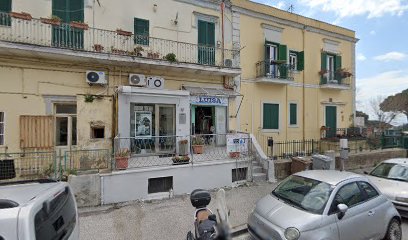
Luxury Commerce SRL
11.0 km
Discover the epitome of Italian fashion at Luxury Commerce SRL in Naples, where elegance meets modern style in a vibrant shopping experience.

Betty Boup
11.0 km
Explore Betty Boup in Naples, where stylish clothing meets Italian charm—perfect for discerning travelers and fashion lovers alike.

Negozio a Posillipo
11.4 km
Discover unique souvenirs and local craftsmanship at Negozio a Posillipo, a must-visit shopping destination in Naples, Italy.
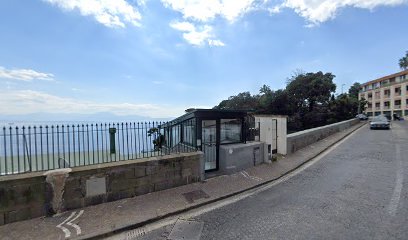
Giuliana Via Posillipo
11.4 km
Discover the elegance of Italian fashion at Giuliana Via Posillipo, a must-visit women's clothing store in Naples, combining style with stunning views.

Mundo Anna Maria
11.4 km
Discover authentic Neapolitan crafts and culinary delights at Mundo Anna Maria, a unique store in the picturesque Posillipo area of Naples.
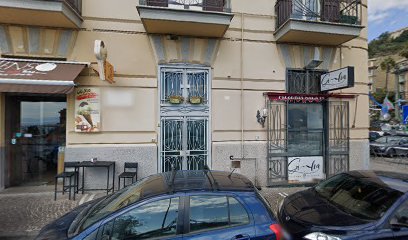
Blessed
11.5 km
Discover the essence of Naples at Blessed Store, where unique local crafts and artisanal treasures await every visitor.

The Blueberry
11.6 km
Explore the latest women's fashion trends at The Blueberry, a chic clothing store in the heart of Naples, Italy, perfect for style-conscious travelers.
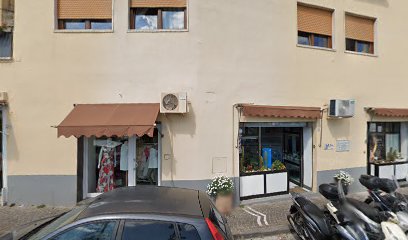
SPAZIO F Showroom
11.7 km
Discover a world of exquisite design at SPAZIO F Showroom, where Naples' artistic heritage meets contemporary elegance.
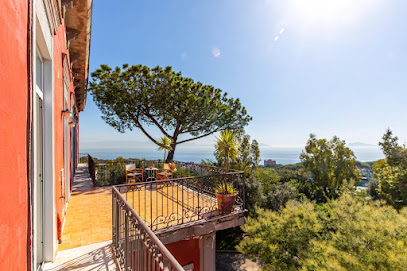
Magic island R&S Posillipo
11.7 km
Explore the vibrant cannabis culture at Magic Island R&S Posillipo, Naples' premier cannabis store offering a unique selection and expert guidance.

Galiano
12.2 km
Explore Galiano in Giugliano for a unique shopping experience featuring stylish clothing and accessories for men and women.

Parco Commerciale Grande Sud
12.3 km
Discover a shopper's paradise at Parco Commerciale Grande Sud, where diverse retail and dining options meet vibrant entertainment in Giugliano in Campania.

Galleria 66 Concept Store
13.1 km
Experience Italian fashion at its finest at Galleria 66 Concept Store in Naples, where style meets elegance in a unique shopping setting.

Le Zirre Napoli
13.5 km
Explore the essence of Italian fashion at Le Zirre Napoli, your go-to boutique for women's clothing and accessories in Naples.

L'Angolo di Provenza
13.5 km
Explore L'Angolo di Provenza, your go-to gift shop in Naples for authentic Italian souvenirs and local handicrafts that embody the spirit of Italy.

Essential bars & hidden hideouts
Lucrezio Cafè
10.0 km
Discover the heart of Naples with exquisite coffee and stunning views at Lucrezio Cafè, your perfect retreat in this vibrant city.
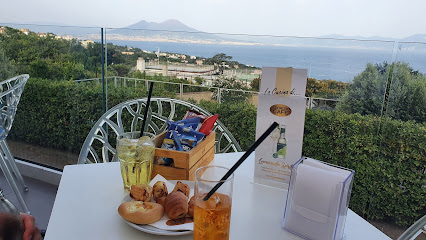
Downstairs Posillipo Lounge
10.8 km
Discover the chic ambiance of Downstairs Posillipo Lounge in Naples, where exquisite drinks meet a sophisticated atmosphere for the perfect night out.
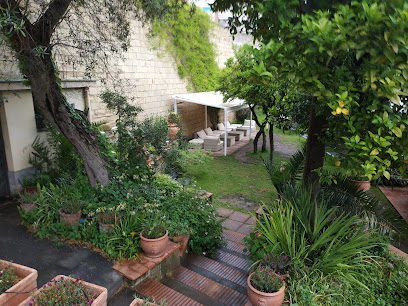
Bar Posillipo
11.0 km
Experience the charm of Bar Posillipo, a scenic bar in Naples offering stunning views and authentic local flavors.
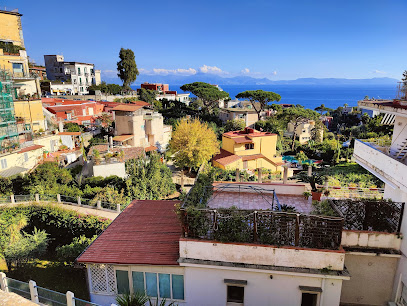
Caffetteria Serpentone
11.3 km
Discover Naples’ vibrant coffee culture at Caffetteria Serpentone, where every sip tells a story of Italian tradition and flavor.
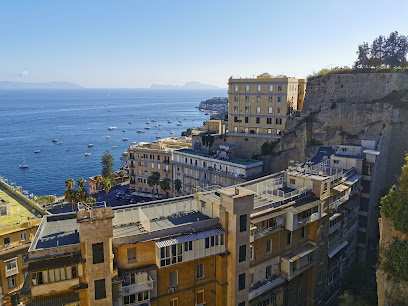
Miranapoli
11.3 km
Experience the vibrant flavors of Naples at Miranapoli, a bar and cafe offering exquisite small plates and a delightful tea selection.
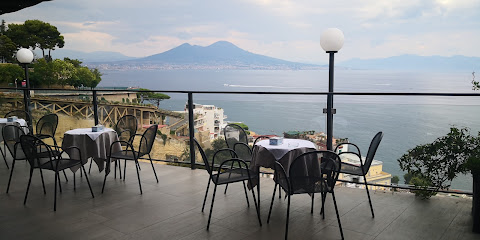
Ke' Bar Manzilli
11.5 km
Experience the heart of Naples at Ke' Bar Manzilli, where local flavors meet a vibrant atmosphere in a cozy café setting.
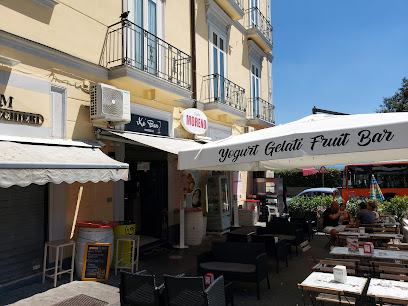
Bar Olimpico
11.5 km
Experience the lively ambiance of Bar Olimpico in Naples, where local culture meets a delightful selection of drinks and snacks.
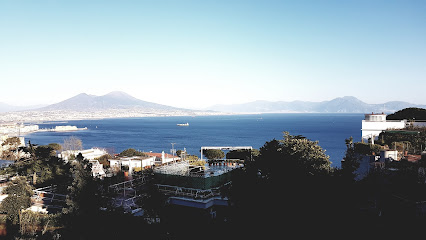
Bar del Mare Posillipo
11.8 km
Discover the flavors of Naples at Bar del Mare Posillipo, where seafood and pizza meet stunning Mediterranean views.
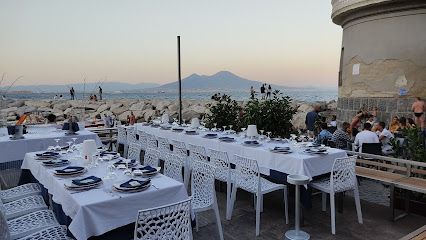
Il Malandrino - Lounge Bar
11.9 km
Discover Il Malandrino in Naples, a cocktail bar that blends elegance with breathtaking views and exquisite drinks for an unforgettable experience.

Twins - Cocktail Wine Coffee
12.2 km
Discover the vibrant cocktail culture of Naples at Twins - a chic bar offering innovative drinks in a lively atmosphere.

Gianni Pub
12.2 km
Discover the lively ambiance and great drinks at Gianni Pub, a must-visit spot for tourists in Naples.

Riviera Cafè Lounge Music Wine Bar
12.8 km
Experience Naples at the Riviera Cafè Lounge Music Wine Bar, where fine wines, live music, and stunning bay views create an unforgettable atmosphere.
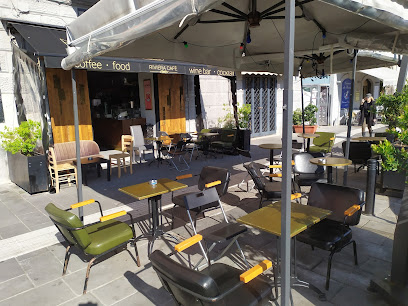
The Jungle cocktail & Tapas
13.0 km
Experience the vibrant atmosphere of The Jungle cocktail & tapas bar in Naples, where exotic cocktails meet delicious tapas in a unique setting.

Vintage Bar
13.1 km
Discover the heart of Giugliano at Vintage Bar, where the ambiance meets delightful beverages in a cozy setting.

Swig Chiaia
13.2 km
Discover Swig Chiaia, Naples' top cocktail bar, known for its creative drinks and vibrant nightlife, perfect for tourists seeking an unforgettable experience.




